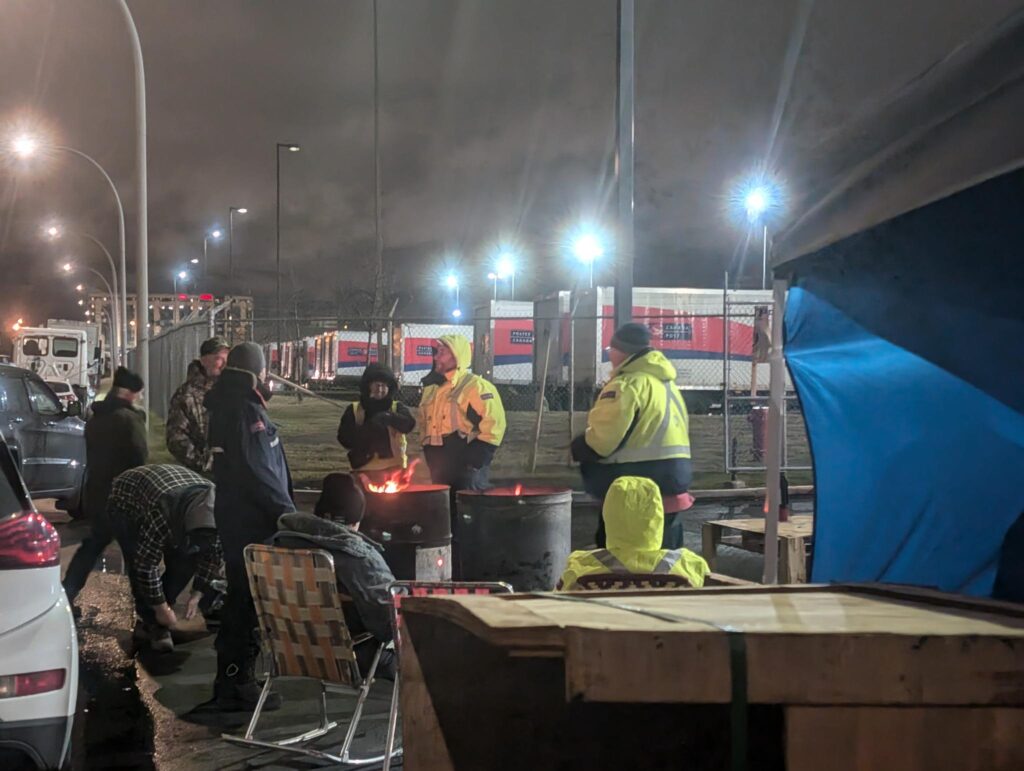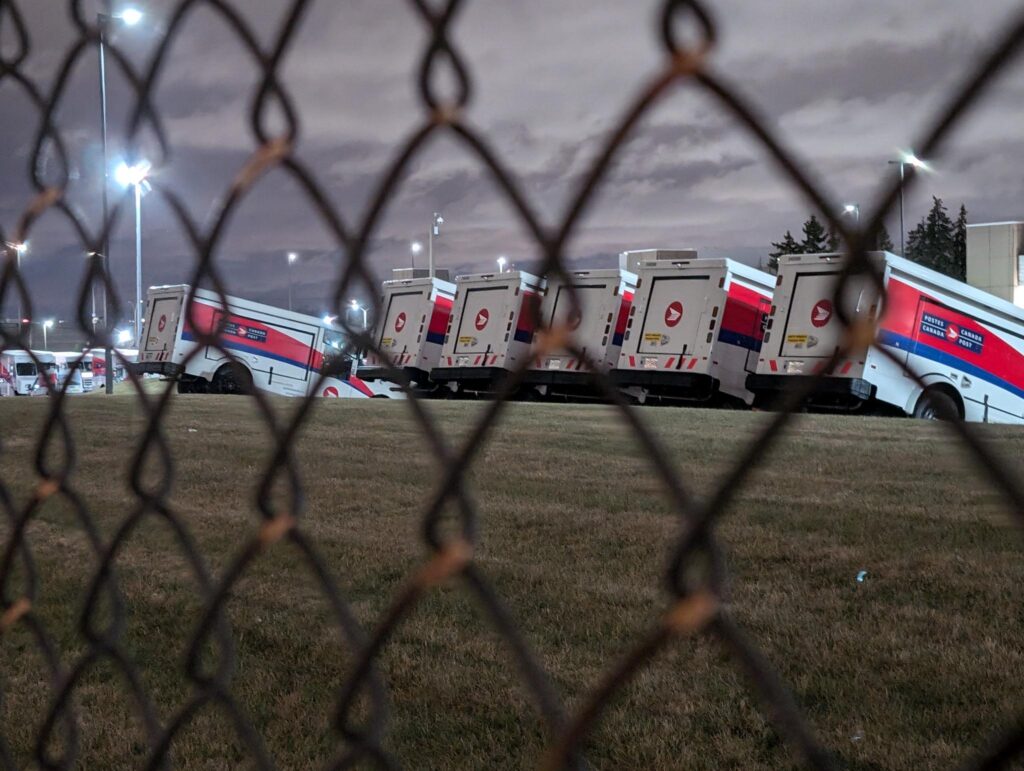At the Léo-Blanchette mail sorting mega-centre, tensions are running high between striking workers and Canada Post. The latter has hinted that it may try to cross picket lines overnight to pick up privately owned trailers. In response, the union called on all its members in the Montreal area to come out and support them this weekend.
Canada Post does not transport all its own mail. It uses private companies for part of its long-distance transport. Alain Laroche, CUPW’s 5th vice-president in Montreal, remarked in an interview with The North Star:
“They should have picked them up before, because there are several in the yard. When you need them and you know there’s a conflict coming, and it’s announced 72 hours in advance, you come and get your stuff. But they didn’t. That’s their problem.”
But that’s not all. Laroche explains that “since the beginning of the strike, the employer has been contacting us to try and get a builder in because they want to do some renovations inside.” The fire department also came to put out the workers’ fires. The workers keep warm on picket lines by burning wood in barrels.
“The firefighters told us that they were the ones who had called,” he adds. “So we decided to block access to the parking lot, so that their builder couldn’t get in and their supervisor would go park outside to get access to the facility.”

Workers’ demands for improved postal service rejected
Some 55,000 Canada Post workers, unionized with the Canadian Union of Postal Workers (CUPW), have been on strike since Friday morning.
Laroche says morale among strikers is very high. “Nearly 70% of our members are on the picket lines. It’s very good, everyone’s answering the call, and our pickets are out 24 hours a day.”
Postal workers are demanding better conditions, but they also want Canada Post to remain useful to society. “I can tell you that during the pandemic, there was an explosion of parcels in the plant. We had gone after a big share of the market, and then our Canada Post managers didn’t know how to keep the customers.”
The big bosses at Canada Post have not been able to adapt to recent changes in the industry. Despite union demands, they still don’t deliver on weekends.
“We’ve been fighting for years to tell Canada Post to diversify,” adds the trade unionist. “In many postal systems around the world, they’ve moved into banking services. It’s been very successful. There are other models, but Canada Post has been telling us ‘no, no, no’ for years.”

Workers want to use the post office’s strong presence in small towns, villages and rural areas to provide important public services, such as help with monitoring elderly people who are losing their independence.
Postal clerk François Joannette explains to The North Star how it works in France: “Let’s say I’m worried about my mother. I don’t see her very often, and I live a long way from them. I could pay for the monitoring service to keep an eye on my mother.”
“They have questions they ask. Has the person answered? Is she healthy? Does she seem coherent? And that’s passed on to the health services, to say that the person is still there and that she’s okay.”
“Sometimes, we’re the only person seniors see every day,” adds Nathalie Desnoyers, also a clerk at Canada Post.
The workers told The North Star that, instead of developing this kind of service, Canada Post is investing in machinery that remains unused. Among other things, the corporation bought a multimillion-dollar parcel-sorting machine that doesn’t work.

In addition, Canada Post has set aside $1 billion by 2022 to make an energy transition, including the purchase of electric vans. Workers confirmed to The North Star that many of them are parked near the warehouse and have been unused for months.
Yet the Crown corporation keeps telling anyone who will listen that it is in financial difficulty. Canada Post workers explained that the state-owned company tends to present these costs as expenses rather than investments. This would give it an advantage at the bargaining table.
